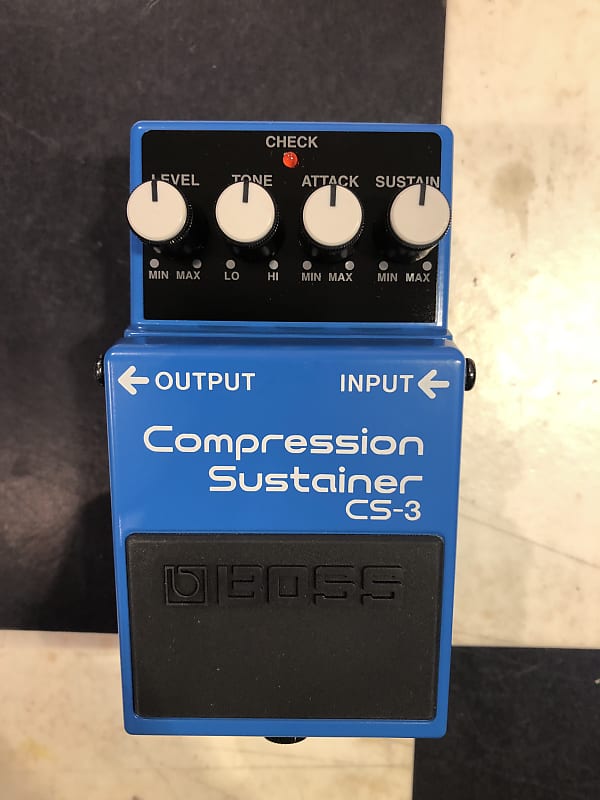

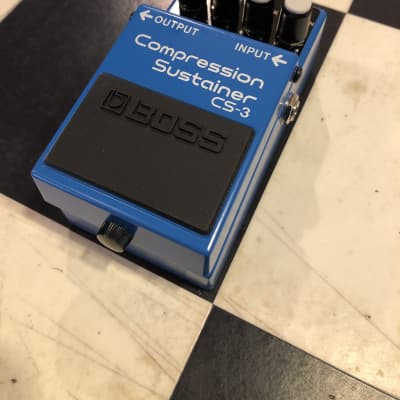
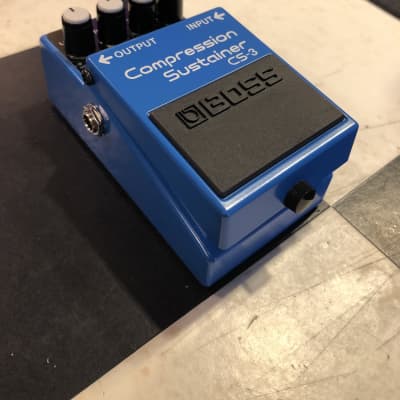





14 Tage Rückgaberecht










14 Tage Rückgaberecht

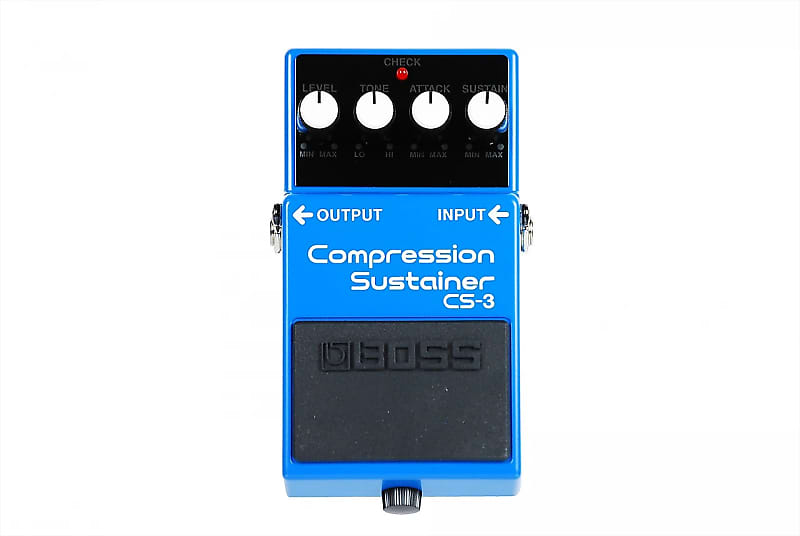
| Marke | |
| Modell |
|
| Finish |
|
| Jahr |
|
| Hergestellt in |
|
| Kategorien |
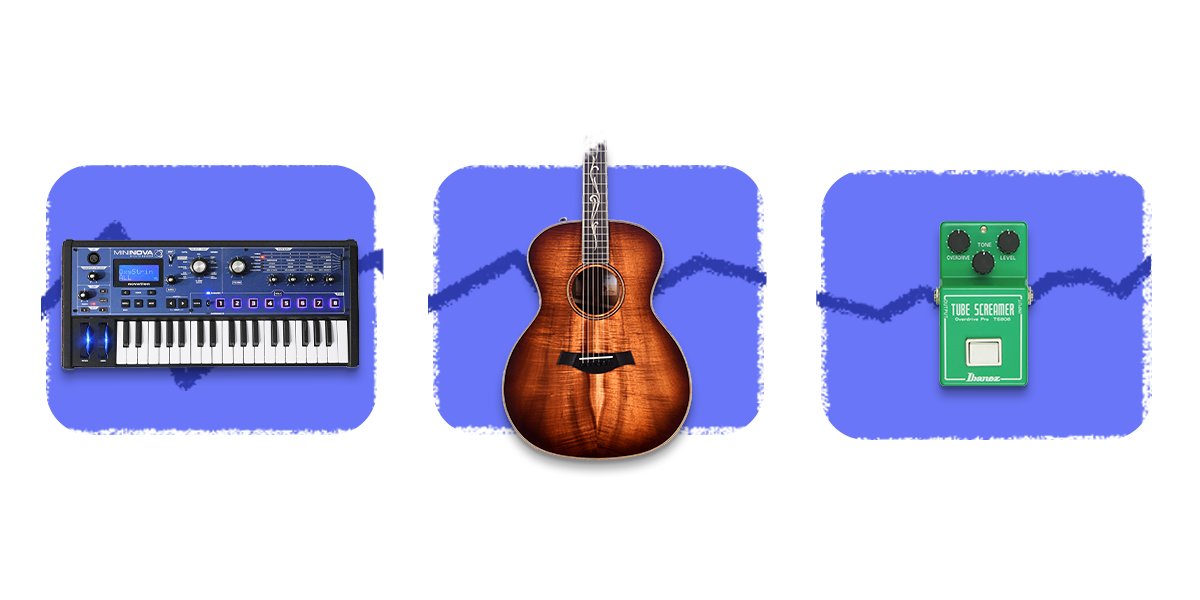
*Ausgeschlossen sind die Kategorien Brandneu, B-Ware, Mittelmäßig, Schlecht und Nicht funktionsfähig. Die Preise verstehen sich zuzüglich Versand und Steuern / MwSt. / Steuer auf Waren und Dienstleistungen.
In early 1970s, the Ross Compressor and MXR Dyna Comp brought compression out of the studio and made them part of guitarists' live rigs. In 1978, Boss jumped on board with the CS-1, which quickly gave way to the CS-2 in 1981 and eventually the CS-3 in 1986, which remains in production today as the company's proven bread-and-butter compressor. If there is bright, hip center to the boutique pedal movement, Boss is the company farthest from it. Simplicity, durability and practicality trump clever names, bold claims and hand-painted casings when it comes Boss' design philosophy, and nowhere is that common sense more important than in a good compressor.
When you pay for a compression pedal, you're usually paying money for something very subtle and sometimes hard to notice. You want it to its job without announcing itself most of the time, and the Boss CS-3 can be massaged into subtlety when turned down. But it really shines when you ask to squeeze the signal as hard as it can, resulting in the snappy, impeccably crisp sound heard on so many country and funk recordings. For this reason, the CS-3 is a perennial favorite among chicken pickers, funk all-stars and jam band soloists.
So much of of the current compressor world revolves around three iconic pedals: the Dyna Comp, the Keeley Compressor and the Boss CS-3. It's good to know how these compare before making any decisions. Of the three, the Keeley is going to be the most subtle, the most quiet in operation and the most expensive. There are plenty of used specimens on Reverb if you want to try one and sell it later, but the less subtle CS-3 might be easier to build some context with if you haven't developed your ear. The MXR Dyna Comp, made famous in part by David Gilmour, is a character that you either like or you don't. With only two knobs, Output and Sensitivity, there's no adjusting the tone or the attack and sustain separately, as you can with the Boss CS-3. For beginners, the CS-3 might be a better pick solely because of its adjustability.
Some people might wonder how a pedal with 1986 technology has survived so long. Aside from getting the power supply jack upgraded in 1997, only one other clear change was made. During the early '90s, the DBX1252 voltage controlled amplifier (VCA) used at the time was swapped out for a THAT2159. When things work, they work. Part of the reason the Boss CS-3 is so popular is because it has proven itself effective and reliable over so many years. If you're curious where a used specimen was made, look for a black label on back for made-in-Japan units (and some made-in-Taiwan) and a silver label for Taiwan products.